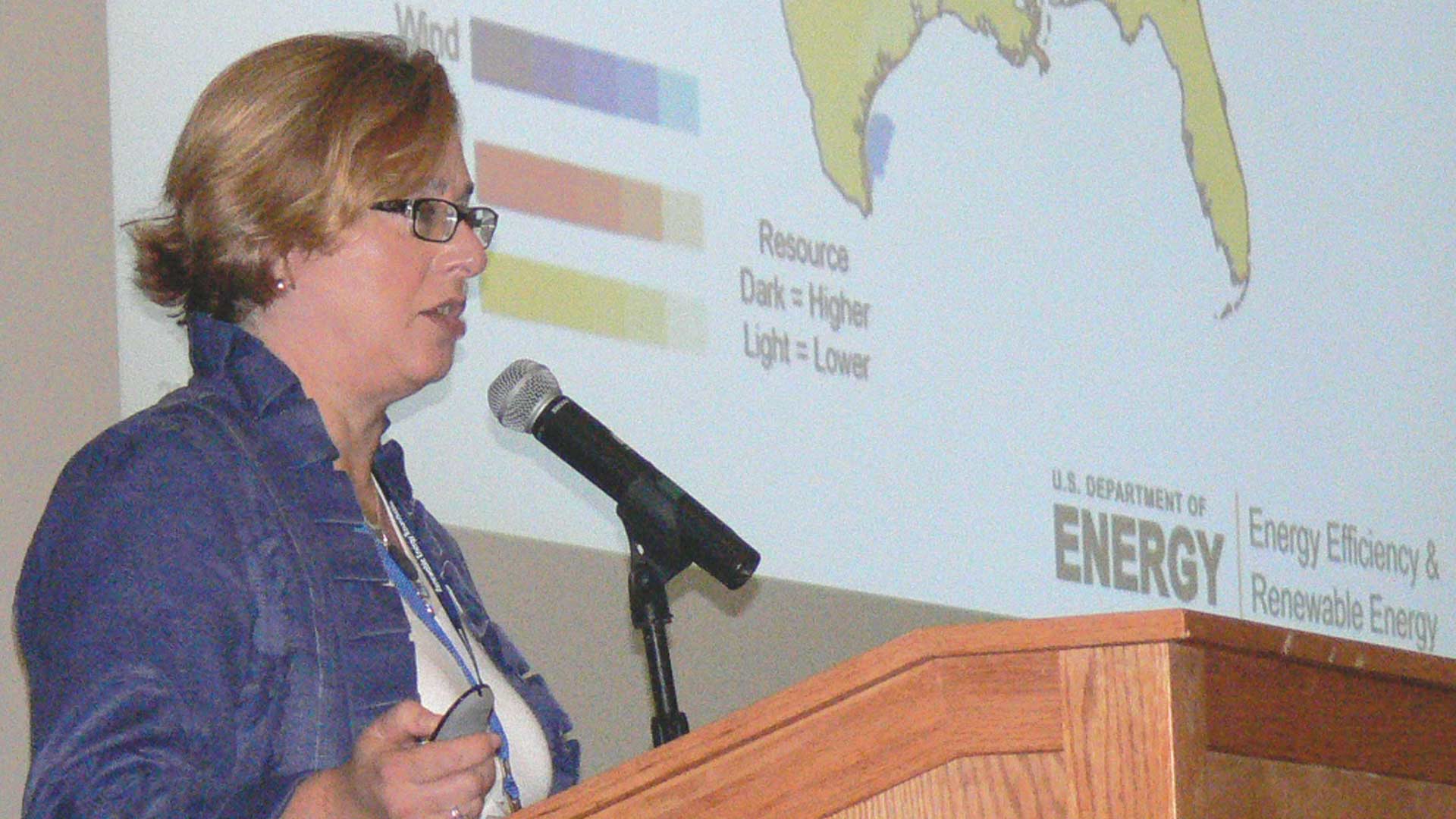Since its inception in 2006, the Minnesota Renewable Energy Roundtable has been a unique partnership, bringing together people from across the renewable energy industry to spur innovation to make Minnesota a national and global renewable energy leader. Partnerships are essential to the roundtable, which is led by a planning team of representatives from the Minnesota Department of Agriculture, Minnesota Department of Commerce, University of Minnesota, the Minnesota State Colleges and Universities System, and AURI.
Recently, leaders looked back at a list of action items from the initial planning days to see what goals and projects had been accomplished. From education to economic development, the following are just a few of the impacts generated in part due to roundtable participation.
Biofuels in gas turbines
The Center for Diesel Research at the University of Minnesota, the Soybean Research & Promotion Council, Xcel Energy and others have worked together to examine the feasibility of using bio-oils as a replacement for petroleum fuels in gas turbines for electrical generation. As a result of this work, Xcel Energy is in the process of implementing these technologies in their operations.
Gasification energy production
Participants in the roundtable expressed a desire early on to see gasification energy production on a small and large scale. Today, there are two large-scale production gasification facilities utilizing biomass as a feedstock. The first one is at the Chippewa Valley Ethanol Company and the second one is located at the University of Minnesota –Morris. AURI is working with 10 different partners to bring forward gasification to liquid fuel on a small scale in Roseau, Minnesota. There are currently four additional gasification projects ongoing in various states of development.
Identifying renewable energy workforce needs
With input from a variety of roundtable members, the Minnesota State Colleges and Universities system developed new courses that provide the knowledge-base required by the renewable energy industry. In addition, AURI, the Minnesota Soybean Research & Promotion Council and the Minnesota Corn Research & Promotion Council conducted a workforce gap analysis and asset inventory that was shared and implemented by the renewable liquid fuels industry in Minnesota.
Increased biodiesel use
Many roundtable participants had a hand in getting Minnesota’s biodiesel mandate into place.
This is just one way members of Minnesota’s renewable energy industry are working together to get biodiesel into the transportation infrastructure and supply chain. Minnesota Soybean Growers and the National Biodiesel Association have implemented training to bring the value of Renewable Identification Numbers to Minnesota’s biodiesel industry, thereby increasing the value of biodiesel to Minnesota producers by an additional $1 per gallon.
